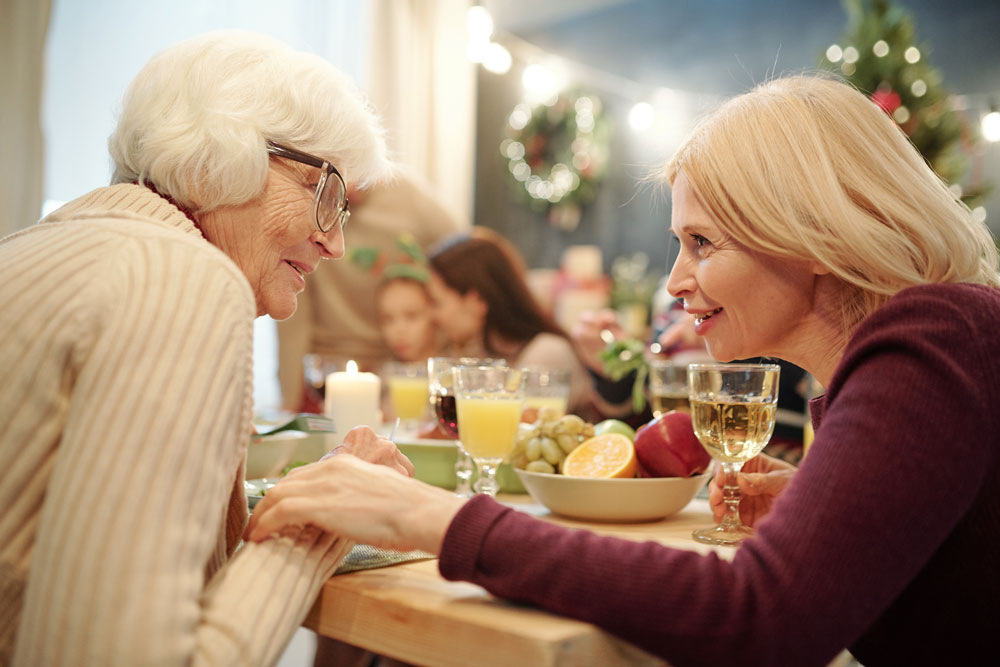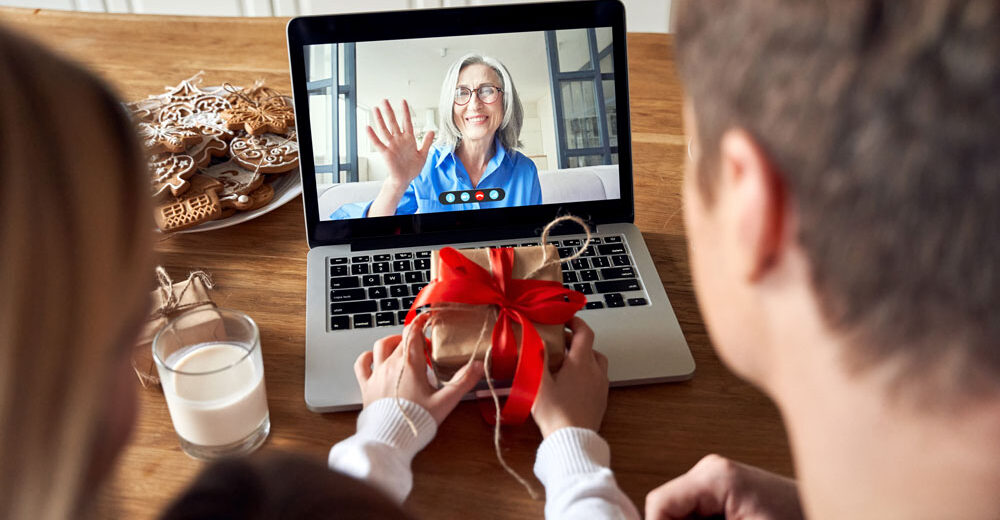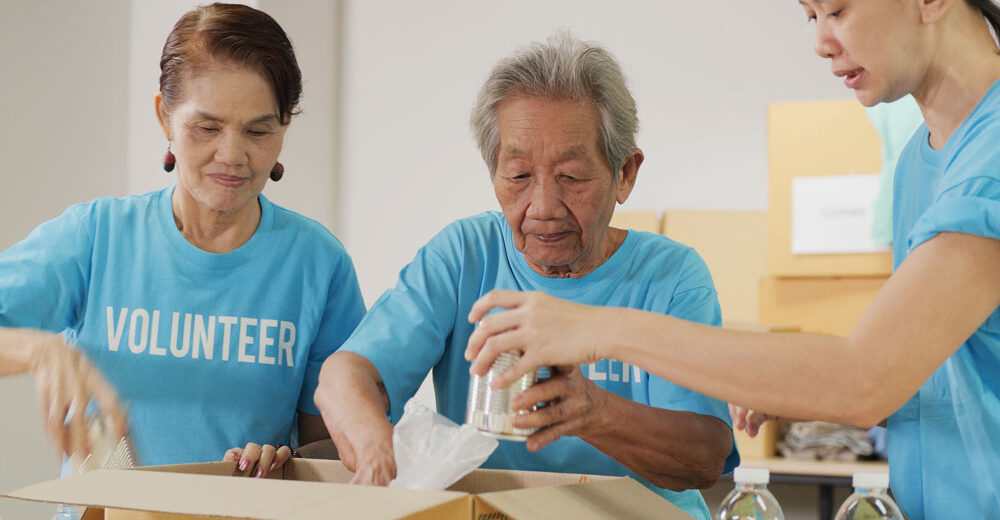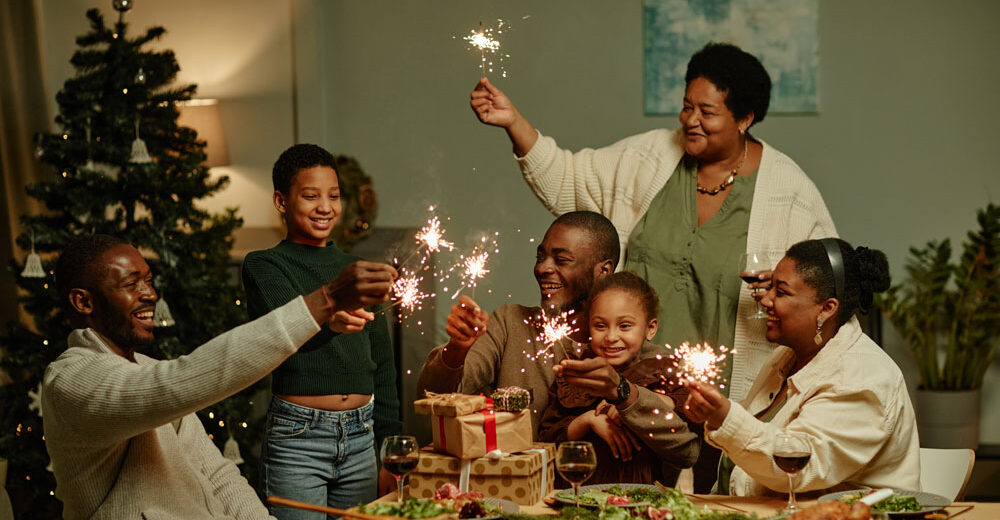Hope for the Holidays: 5 Ways to Help Seniors Cope with Grief
The holiday season can be an emotionally challenging time for the over 6 million seniors in the U.S. battling depression, especially those facing chronic health issues, solitude, or the absence of friends. As festivities approach and grief weighs heavier, it’s important for caregivers, family members, and friends to lend a supportive hand however they can.
If you notice a parent or grandparent feeling a little low this time of year, here are five compassionate ways to help lift their spirits during the holidays:
1. Listen Deeply
Offering a listening ear is a simple, yet powerful gesture for older adults coping with holiday-related sadness. For many seniors, storytelling is an opportunity to honor those they’ve lost, reconnect with their younger selves, and share wisdom with the next generation. Taking the time to listen to these stories and understand the feelings that holidays evoke for them can be a balm for their spirit. It may also spark a renewed sense of value that carries them through this difficult time.
2. Be Inclusive
If you’re looking at your long list of “holiday to-dos” and don’t know where to begin, consider asking an older relative to help you start checking things off. Involving seniors in holiday preparations can not only keep them active and engaged, it can also help them feel useful to those they love. Supporting with meal prepping, game planning, and decorating are just a few easy activities to choose from. You may even consider doing a late night shopping run to enjoy seeing all of the Christmas lights together!
3. Communicate Often
The holidays can be a lonely time for seniors with distant family members or no children. To help them feel less isolated, do your best to keep lines of communication open by calling frequently in the lead-up to the holidays. You can send cards, flowers, or even letters, and encourage family members and friends to do the same. Reaching out often and in thoughtful ways like these can go a long way for seniors.
4. Volunteer Together
What better time to give back to the community than the holiday season? Consider inviting your older family member to volunteer with you somewhere that holds meaning for both of you. Many organizations seek extra hands this time of year, and it could be a great way for the two of you to grow your relationship. Whether it’s a local school, hospital, museum, or church – lending a helping hand together can create a meaningful shared experience and deepen their sense of purpose. Plus, studies show that volunteering offers significant health benefits for seniors, providing opportunities to meet new people, learn new skills, and reduce stress over time.
5. Show Appreciation
It’s likely that most (if not all) of your favorite holiday traditions were started or passed down to you by your senior relatives. Whether it’s making Grandma Rosemary’s famous chowder recipe, or competing in the annual gingerbread house-decorating contest inspired by Great Grandpa Pat, consider the love and intentionality it took to establish these rituals that bring everyone together.
Can you think of a special way to show appreciation for their contributions? If you are still blessed to have them at your table this year, be sure to thank your senior relatives for the gift of family traditions.
While all of these gestures can help seniors cope with grief, it’s important to be aware that for seniors, holiday stress can sometimes escalate into chronic depression. If you suspect a loved one is struggling more than usual, and your efforts to lift their spirits don’t seem to be helping, encourage them to speak with a healthcare provider. Remind them that depression is a treatable medical condition, not something to be ashamed of, and that seeking professional help is a courageous step towards healing.
At St. Paul’s Program of All-Inclusive Care for the Elderly (PACE), we offer mental health services through our Behavioral Health Program for adults 55+ who have qualifying chronic medical conditions. With licensed clinical therapists on-site, seniors can receive one-on-one counseling to help with depression, anxiety, and post-traumatic stress that may increase around the holidays.
Wondering if you or a loved one qualifies for PACE? Fill out this free evaluation form or call 1-833-PACE NOW to speak with an Enrollment Specialist and determine if PACE is right for you.
Together, we can take proactive steps towards preventing holiday blues and alleviating the grief that older adults feel around this time of year.
About the Author: Nicole Antonacci
Nicole Antonacci is the Communications Specialist for St. Paul’s Senior Services. As a writer and photographer, she is passionate about amplifying senior voices and sharing their stories with the community. Through her writing, she aims to inspire seniors and their families to actively prioritize wellness.
Last updated on June 5th, 2024 at 3:20 am - St. Paul’s PACE website H5629 2102 - Approved on 3/23/2021






